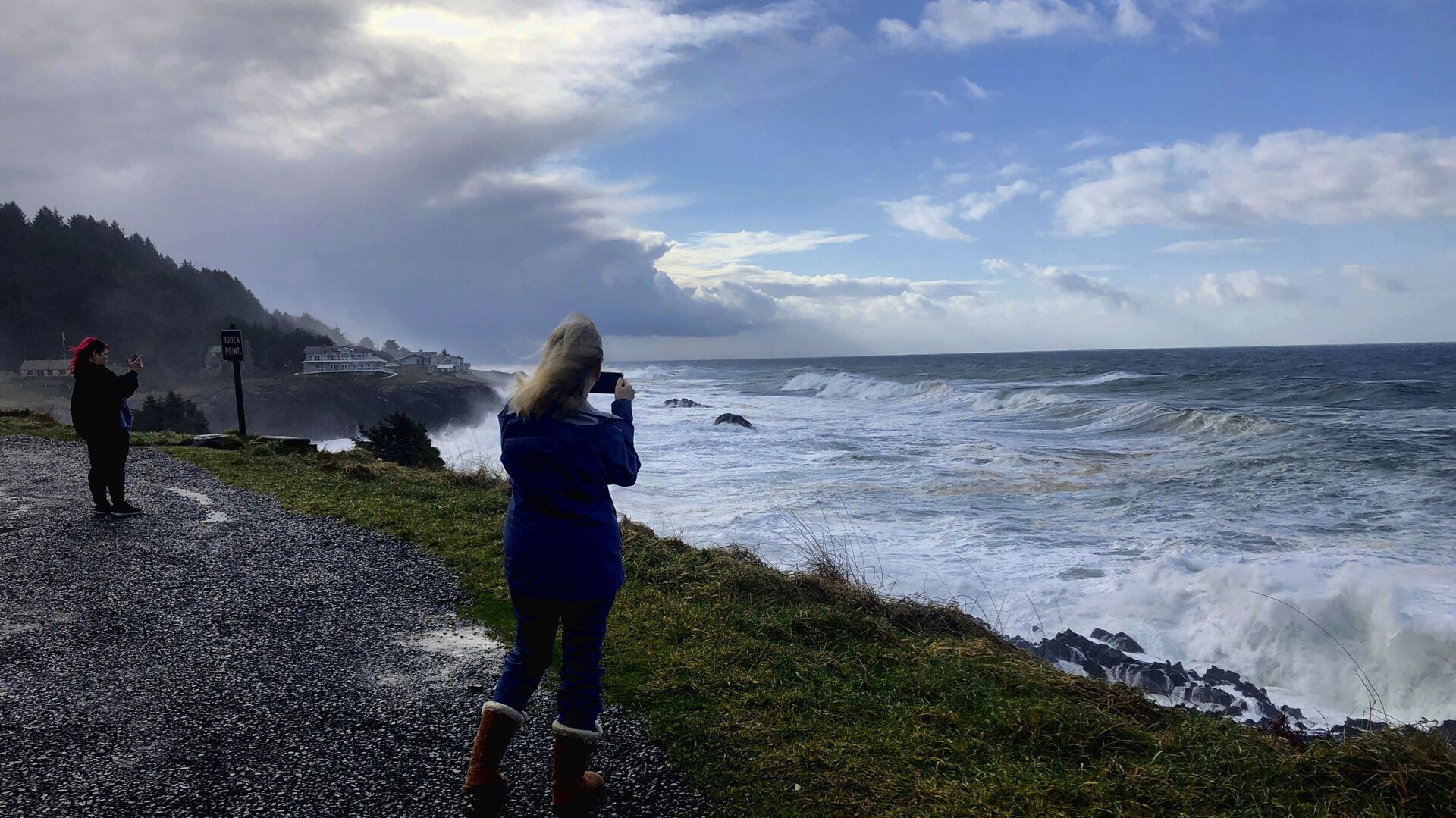Time to Hit the Brakes: Urgent Action Needed to Prevent ‘Runaway Climate Change’, Says UN Report
10:46 GMT 09.08.2021 (Updated: 14:25 GMT 01.03.2022)

© AP Photo / Gillian Flaccus
Subscribe
The United Nations is publishing a series of reports which are the first major review of climate change since 2013. In November the leaders of 196 countries will be in Glasgow for the COP26 climate change summit.
Sea levels could rise by as much as two metres by the end of the 21st century, according to a report from the UN’s Intergovernmental Panel on Climate Change.
The stark warning in the 42-page Summary for Policymakers says only big cuts in greenhouse gas emissions could stop the rising temperatures on Earth.
— IPCC (@IPCC_CH) August 9, 2021
A two metre rise in sea levels would drown much of the eastern seaboard of the United States, most of eastern England, the entire Netherlands, Denmark, most of Belgium, large chunks of northern Germany and western France and vast tracts of southern Russia, eastern China and heavily populated parts of India.
The EU’s vice president in charge of climate action, Frans Timmermans, said there was is still time to prevent "runaway climate change” but only if the brakes were slammed on hard.
UN Secretary-General António Guterres described it as a “code red for humanity” and said it was crucial that COP26 was a success.
— Frans Timmermans (@TimmermansEU) August 9, 2021
The UN report says: “It is unequivocal that human influence has warmed the atmosphere, ocean and land. Widespread and rapid changes in the atmosphere, ocean, cryosphere and biosphere have occurred.”
It goes on to say: "Human-induced climate change is already affecting many weather and climate extremes in every region across the globe. Evidence of observed changes in extremes such as heatwaves, heavy precipitation, droughts, and tropical cyclones, and, in particular, their attribution to human influence, has strengthened since (2013)."
The report predicts global warming will exceed two degrees Celsius during the 21st century unless “deep reductions in carbon dioxide and other greenhouse gas emissions” take place.
It predicts “marine heatwaves” - which would seriously damage ocean life - increasingly intense tropical cyclones and a mixture of heavy rain and severe droughts which would affect agriculture and food production, possibly leading to famines.
— Caroline Lucas (@CarolineLucas) August 8, 2021
The report also predicts a further melting of permafrost and Arctic sea ice, which would raise sea levels.
The report is largely written in academic and fairly impenetrable language but some sections are stark.
For example one section says: "If human-induced changes to the Greenland and Antarctic ice sheets continue for the rest of this century, it will take thousands of years to reverse that melting, even if global air temperatures decrease. In this sense, these changes are therefore irreversible, since the ice sheets would take much longer to regrow than the decades or centuries for which modern society is able to plan."



